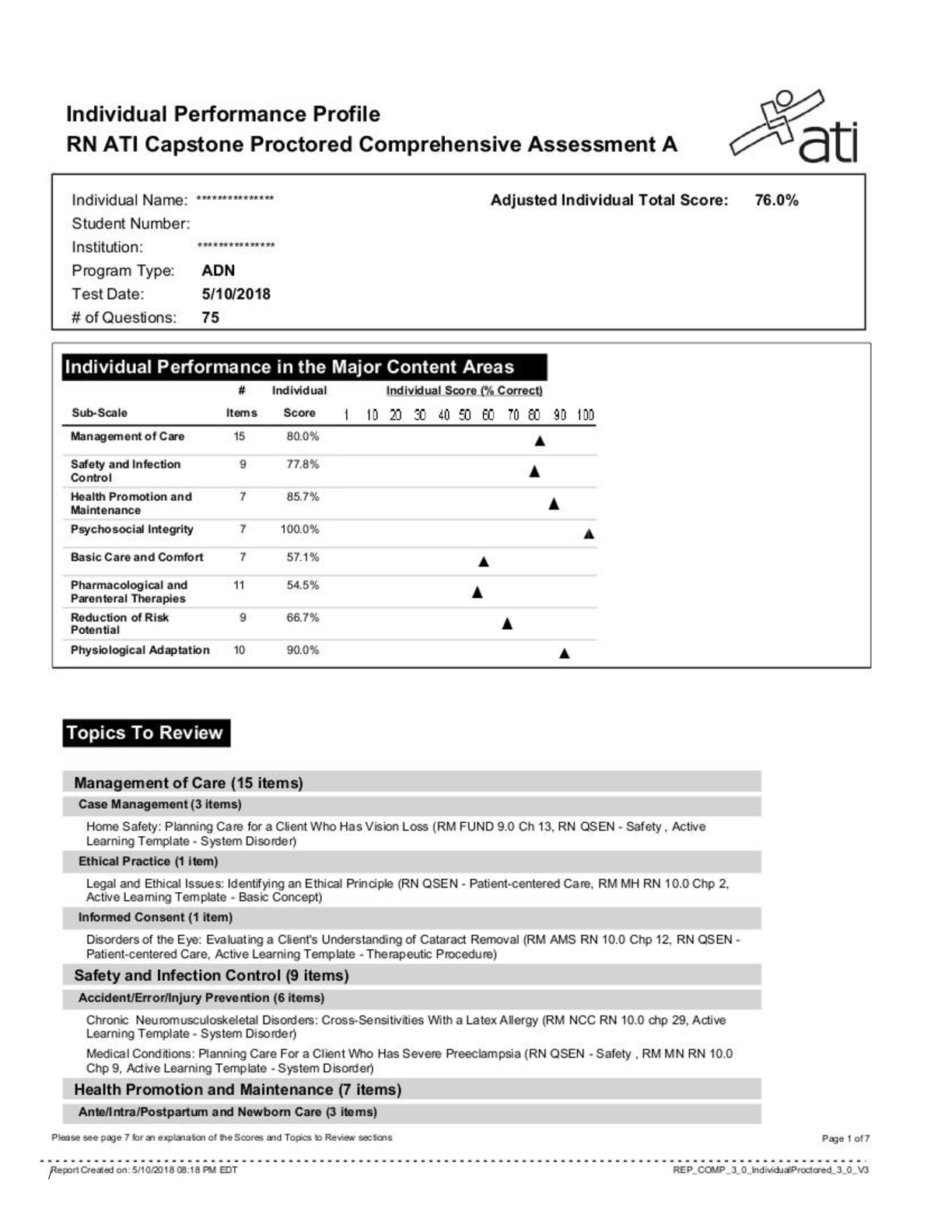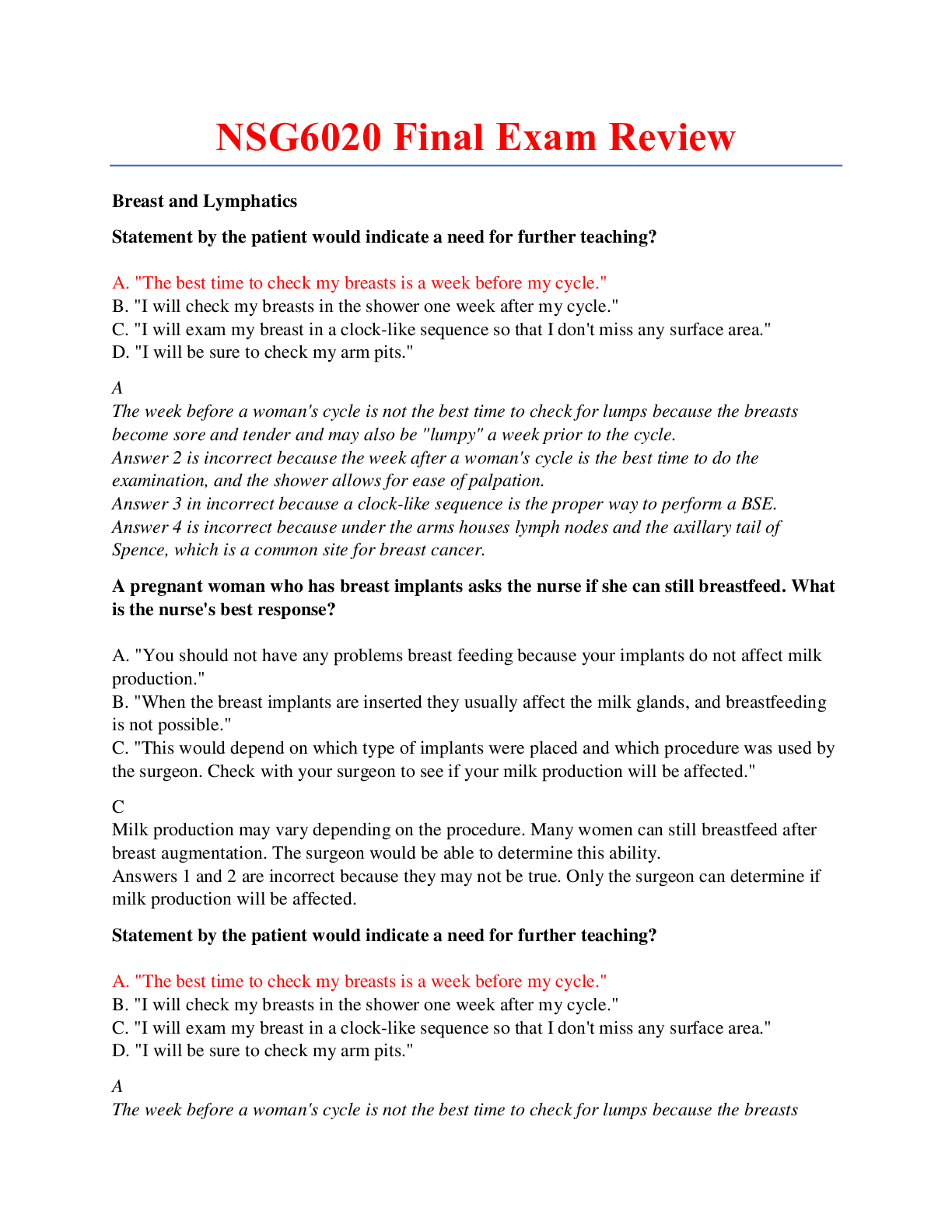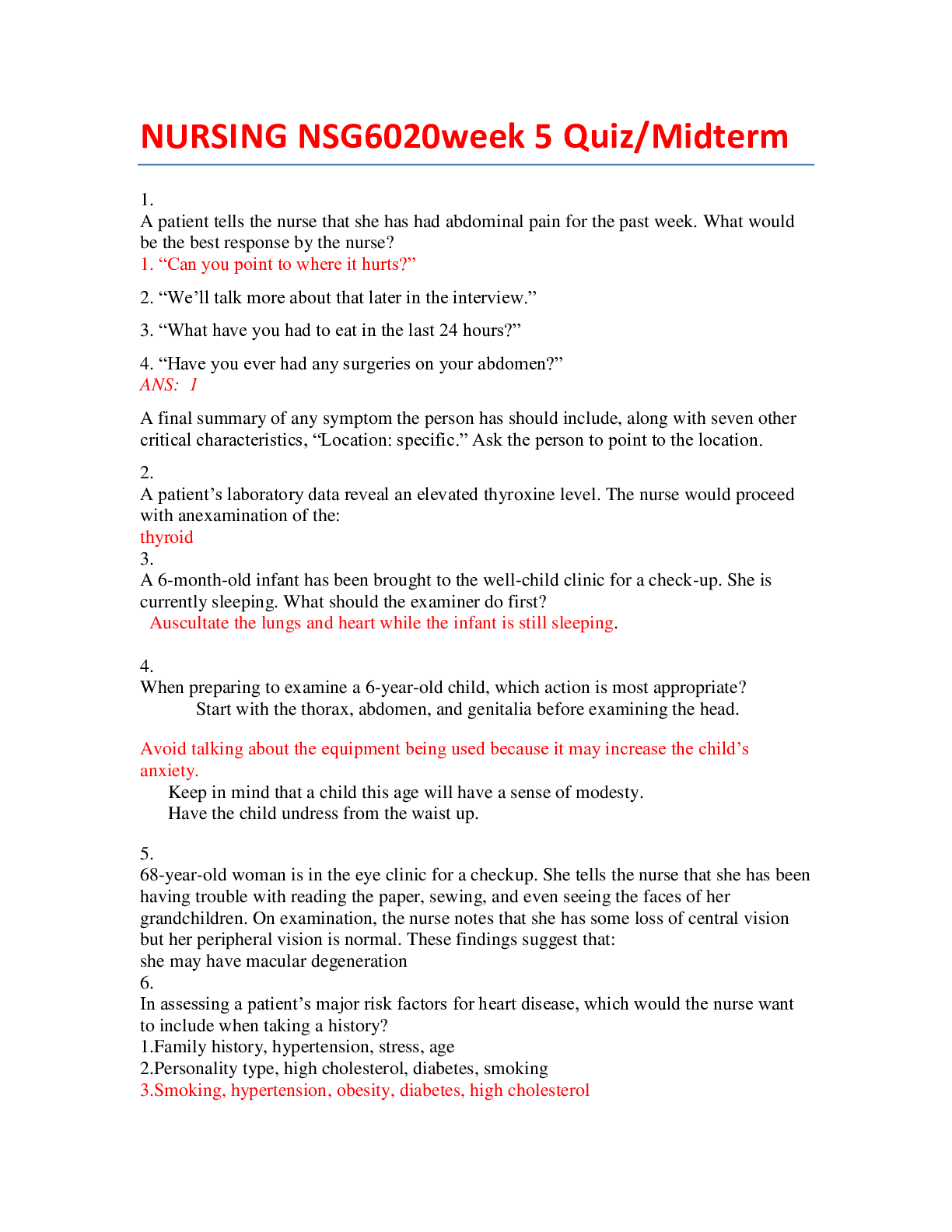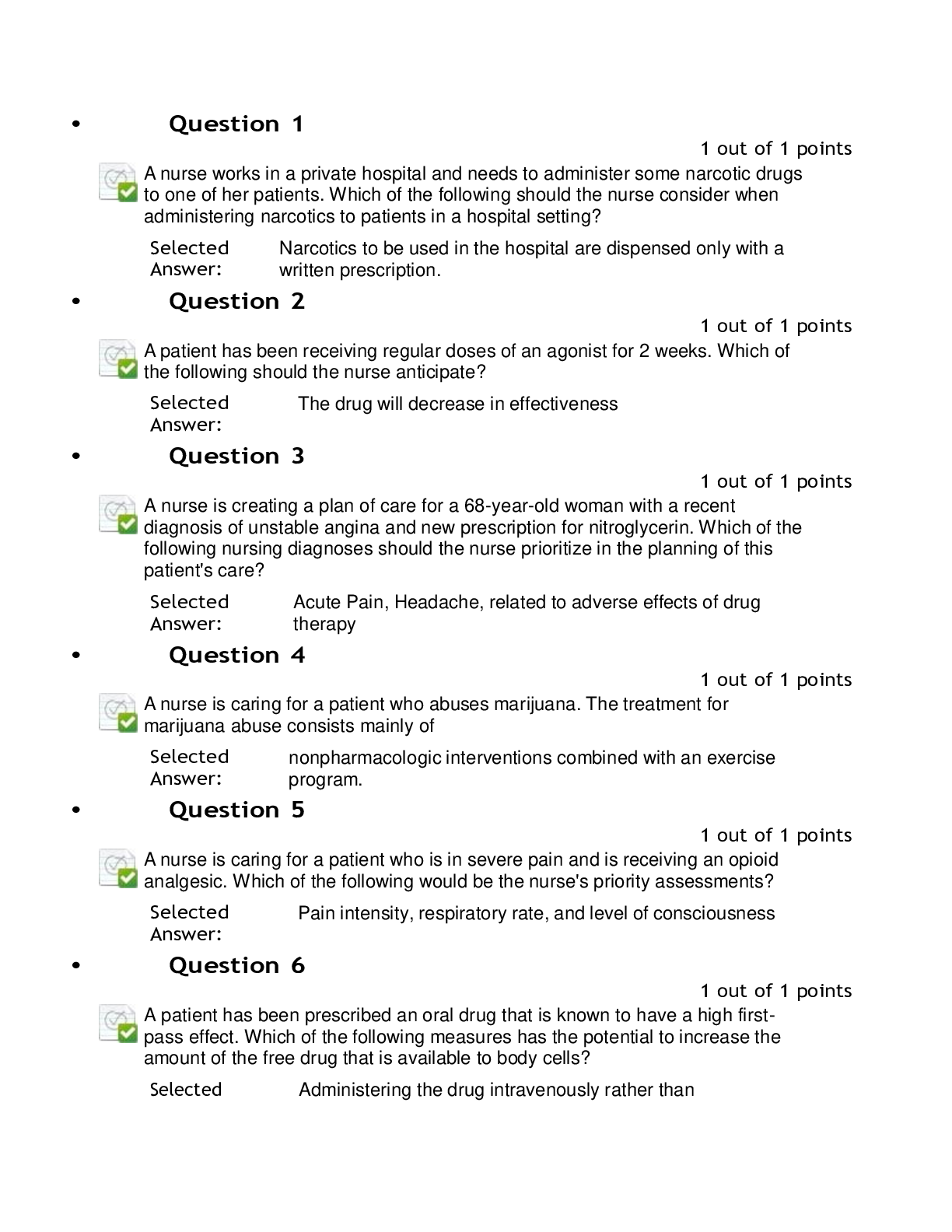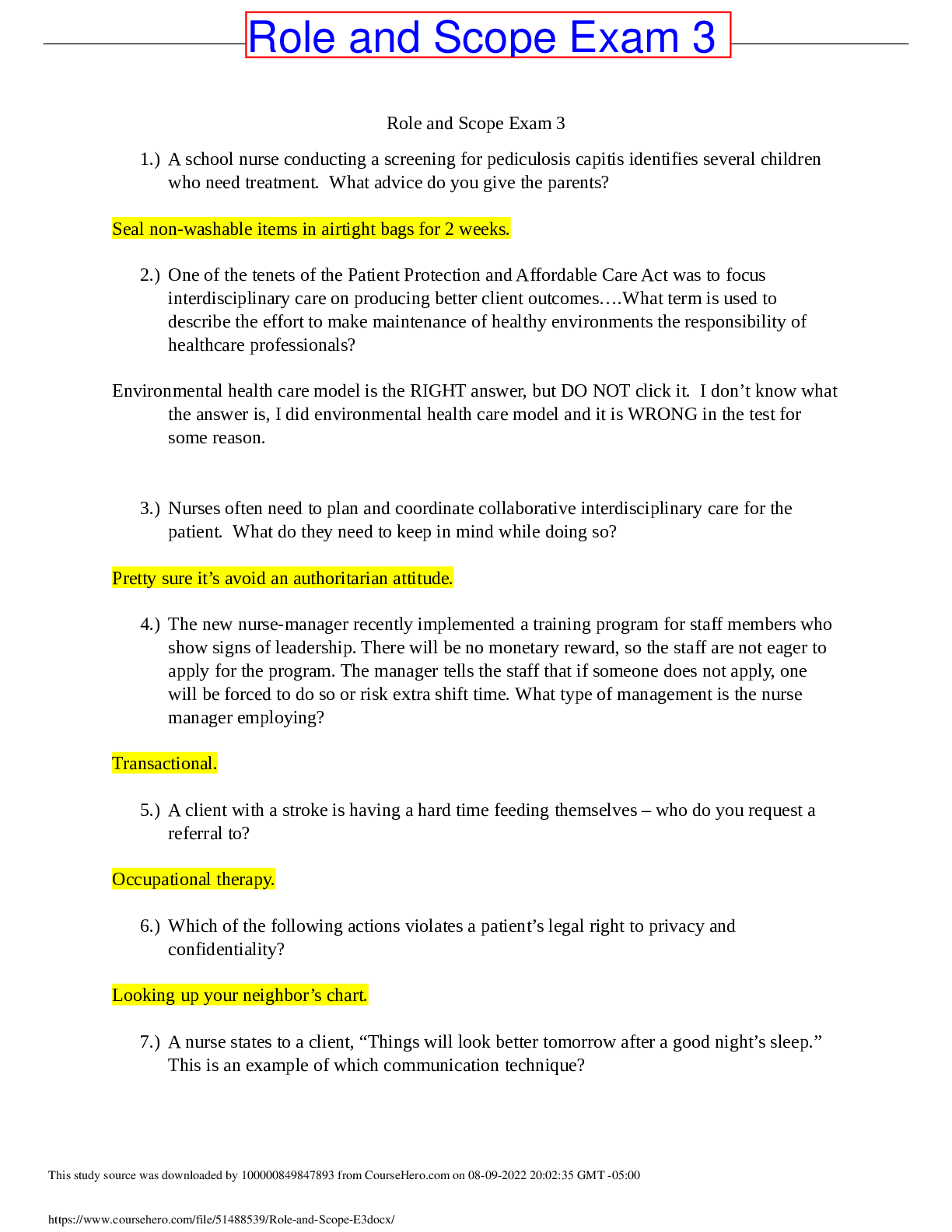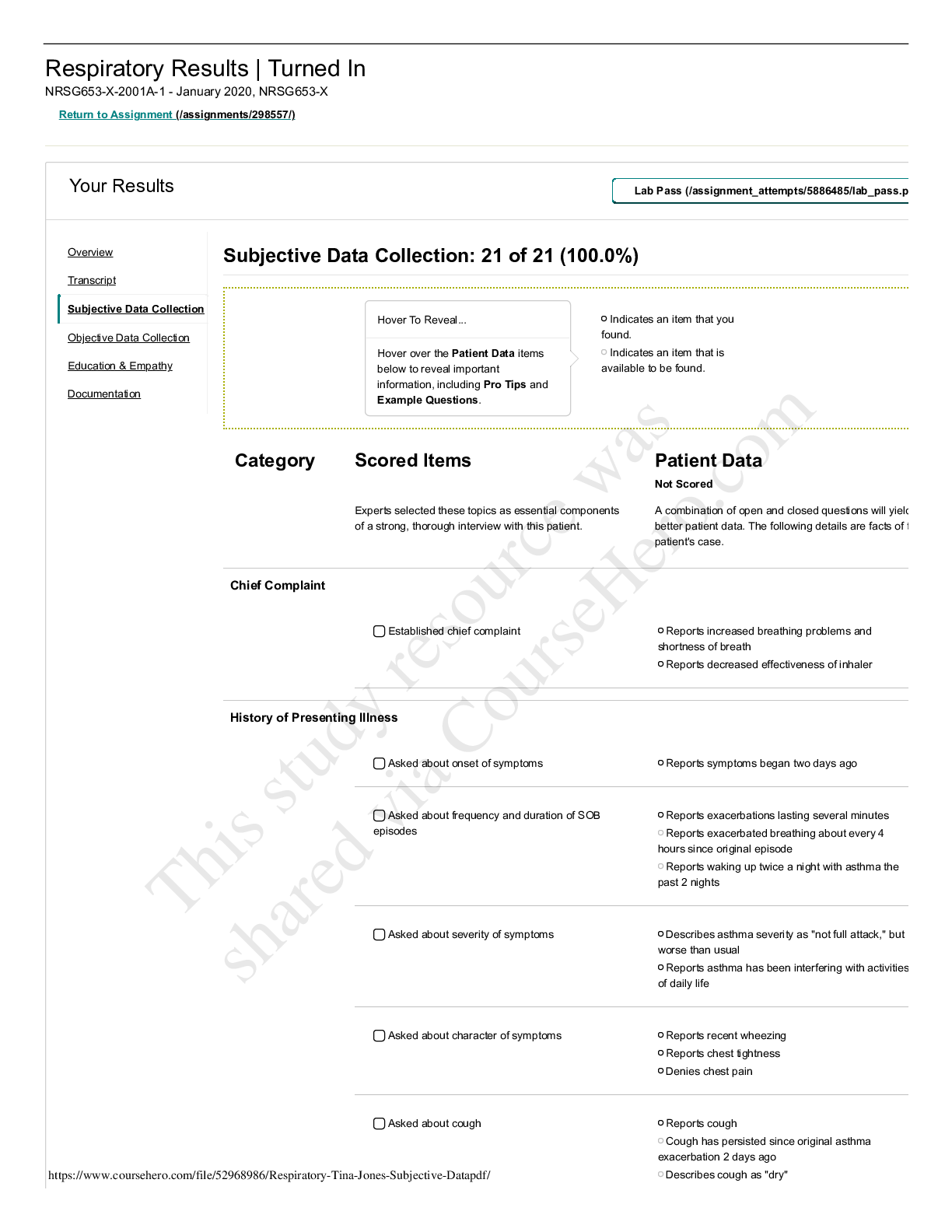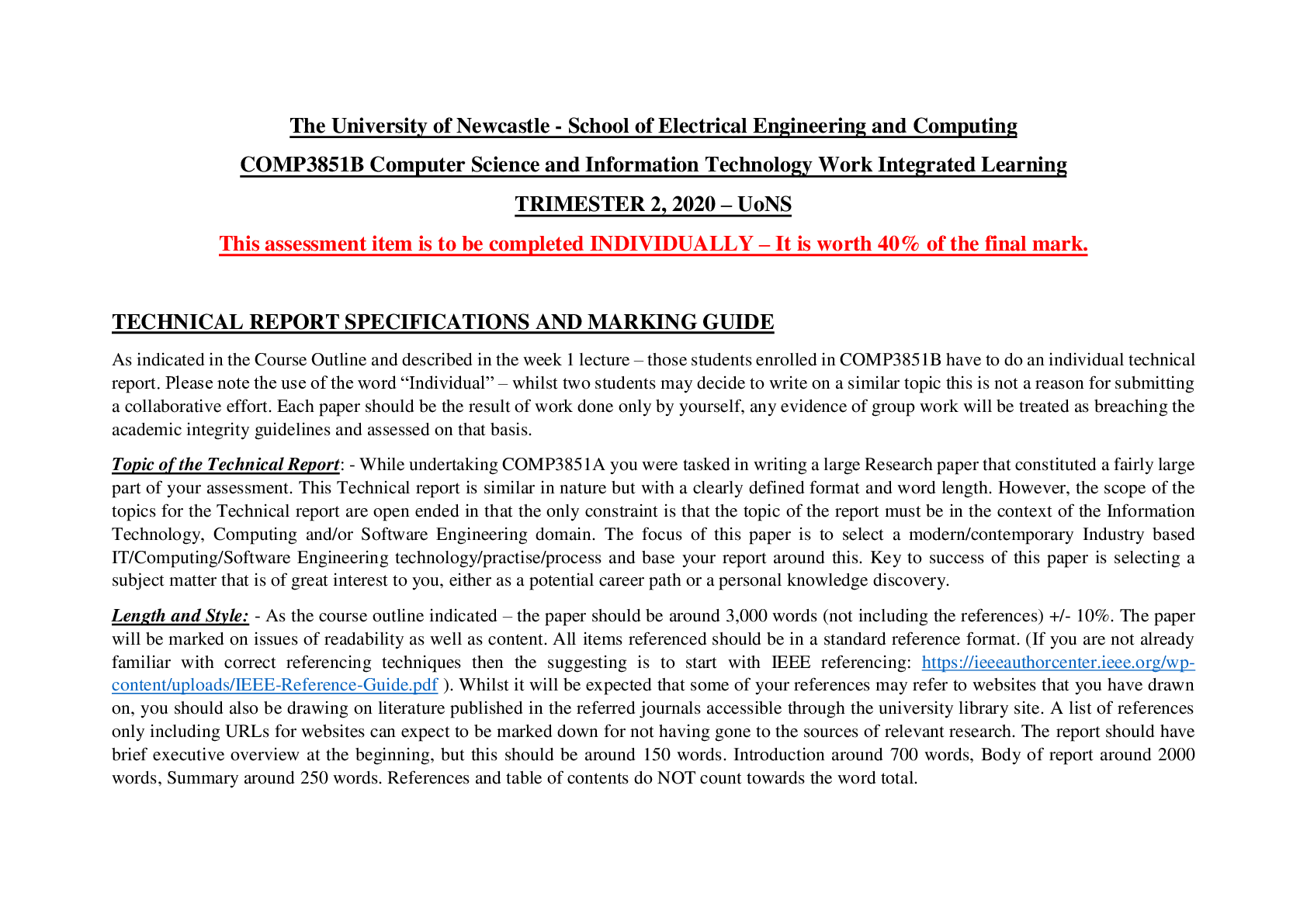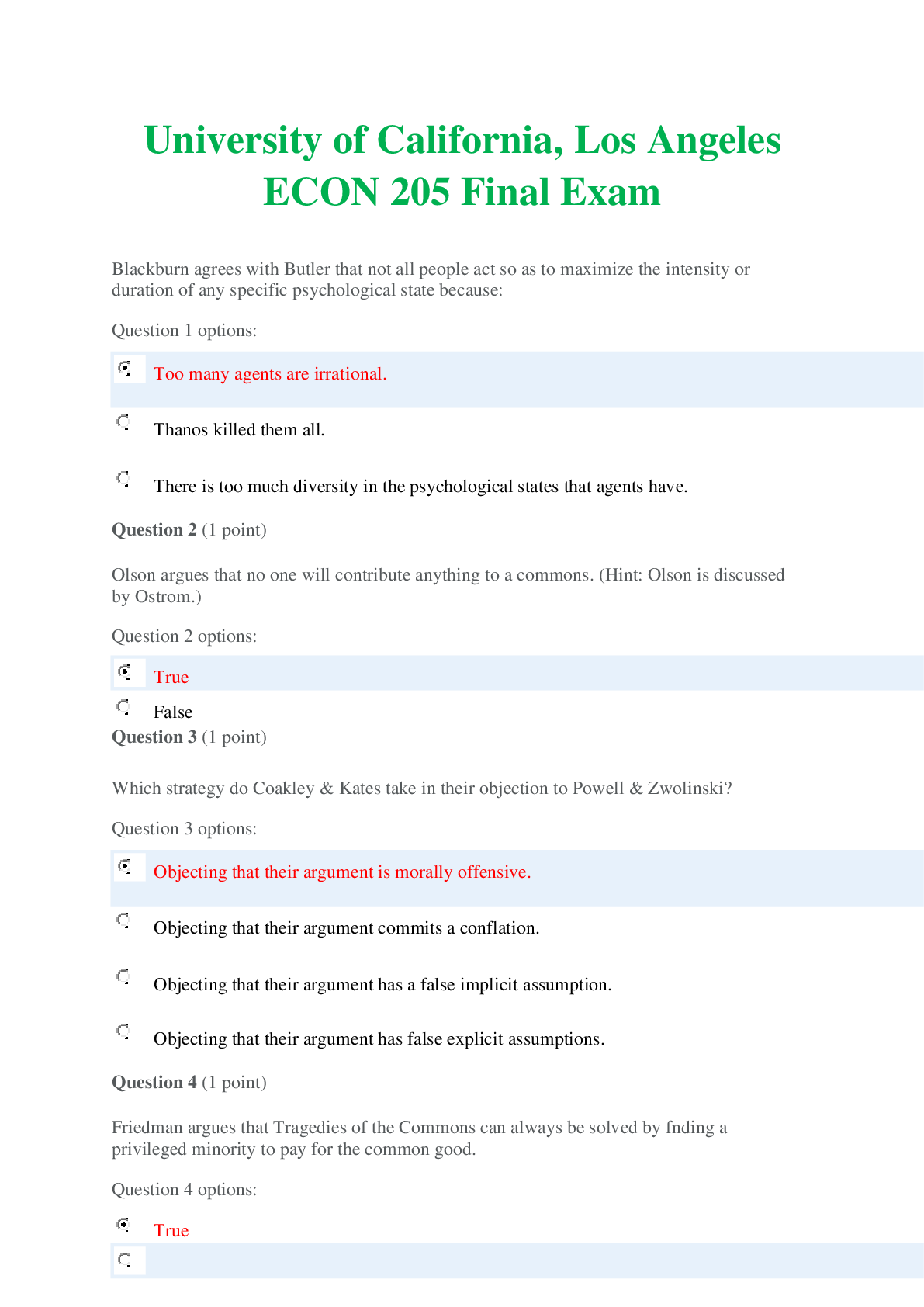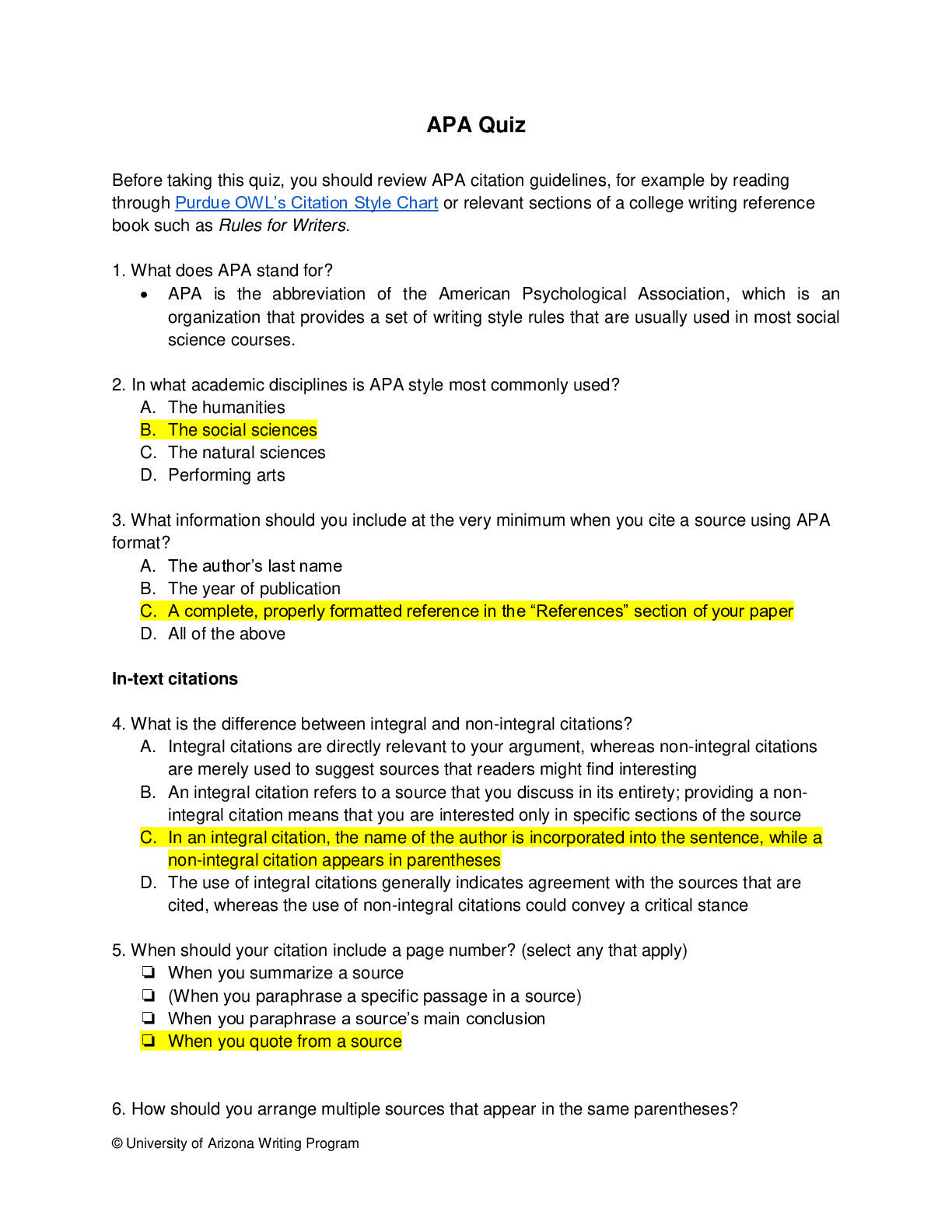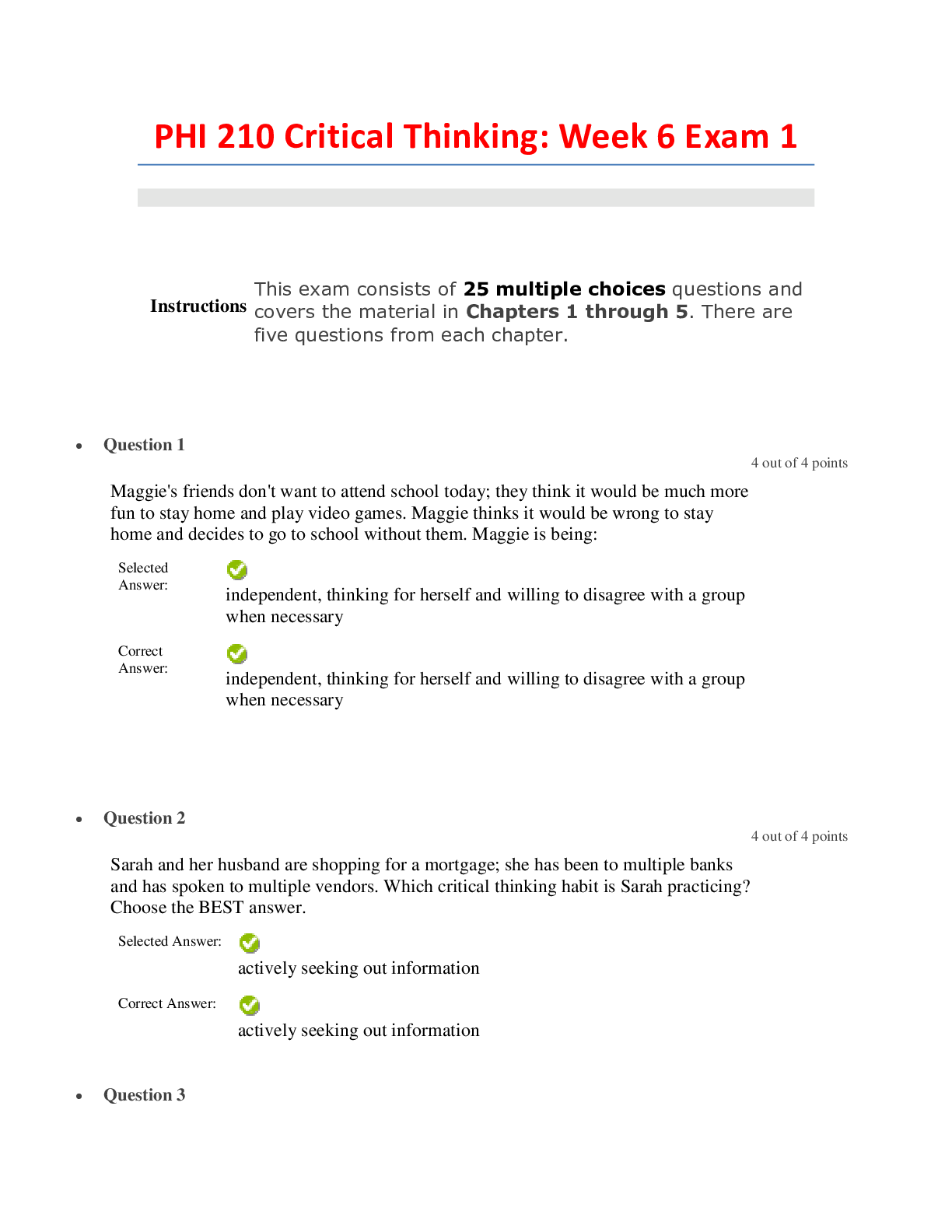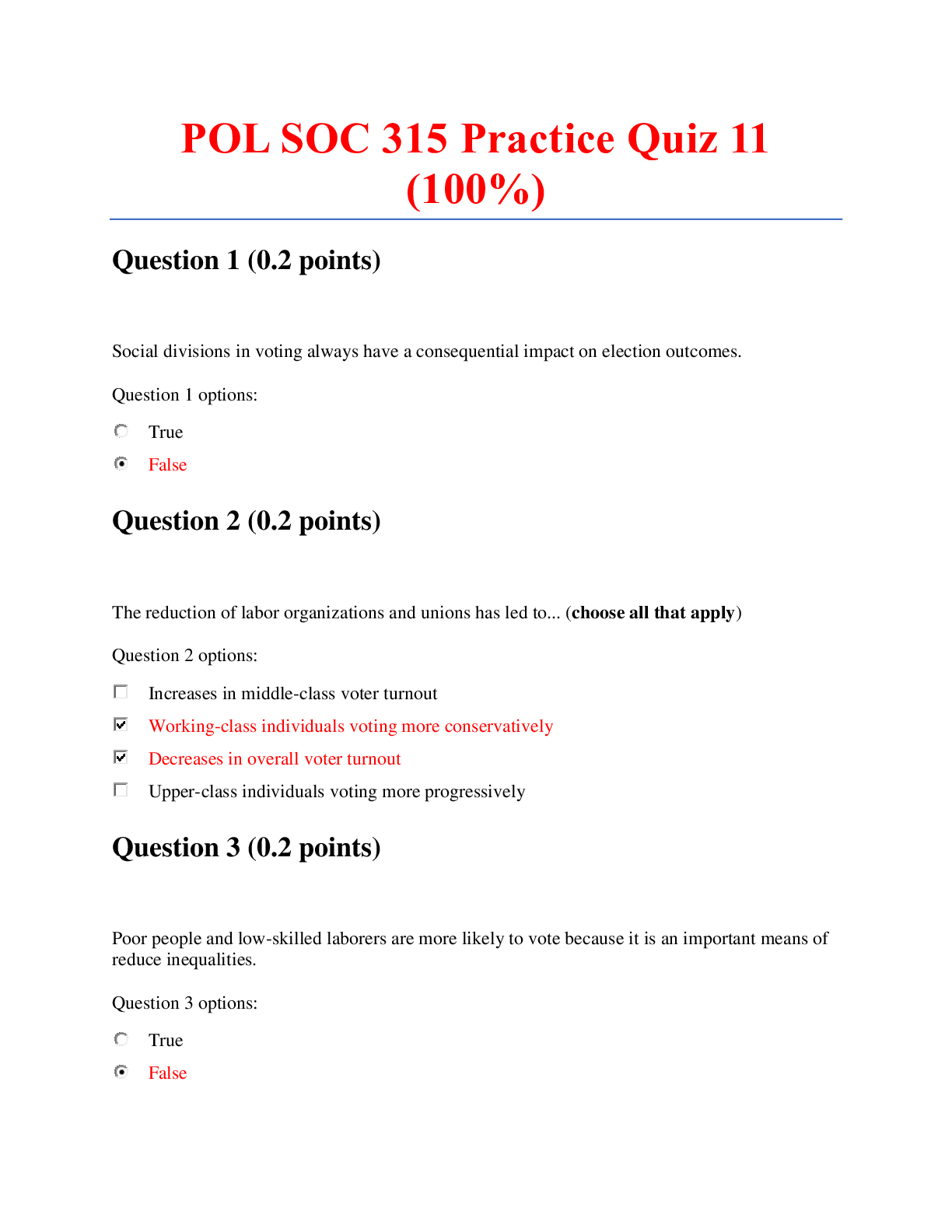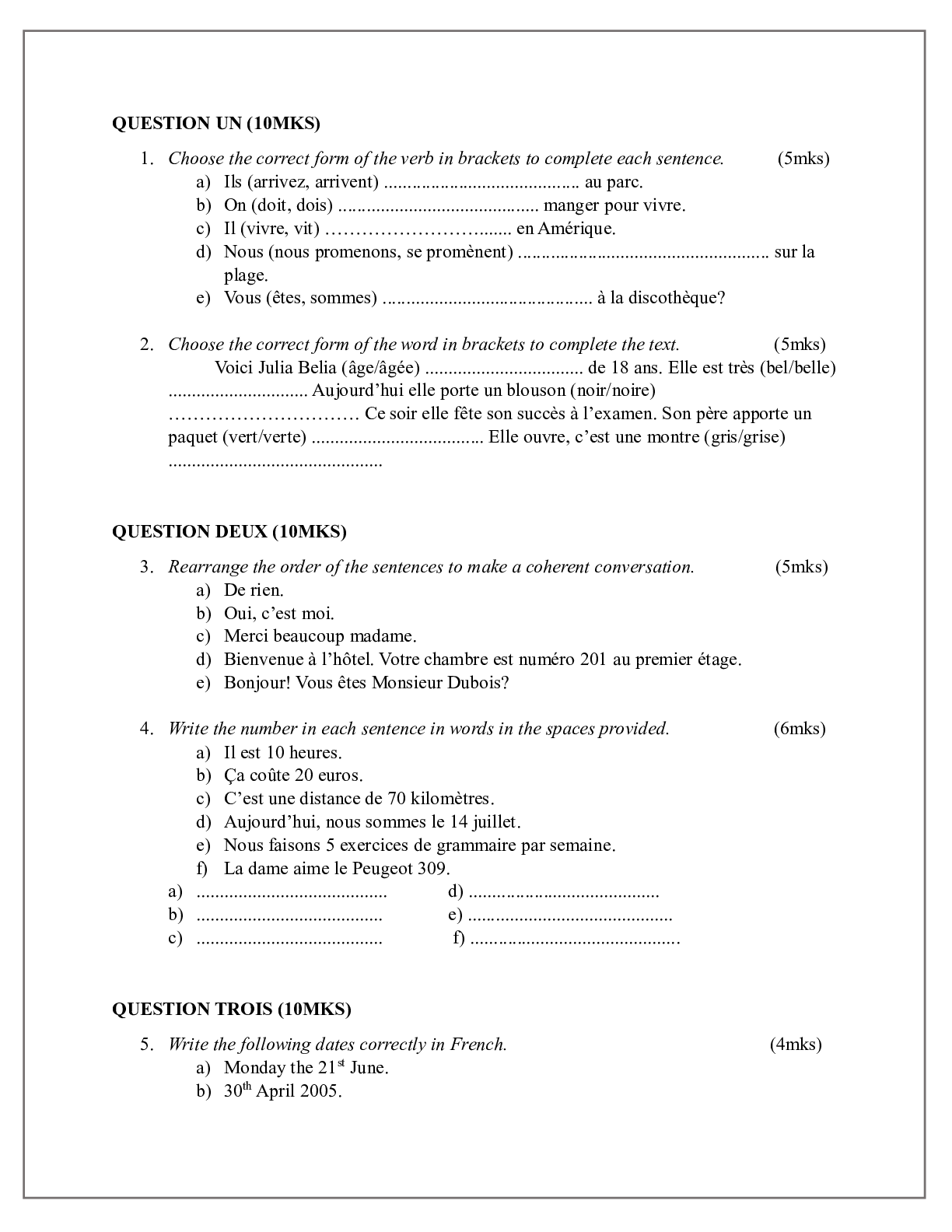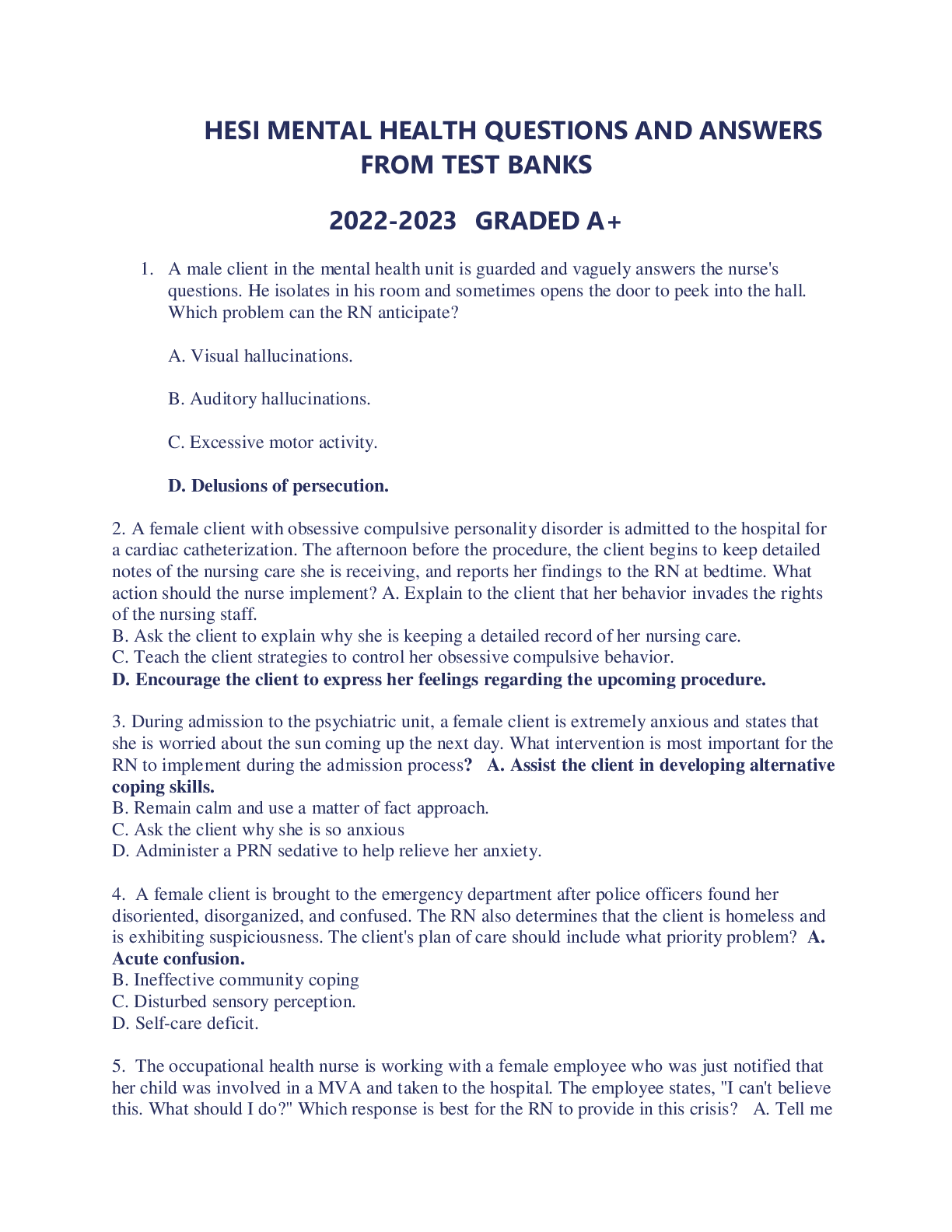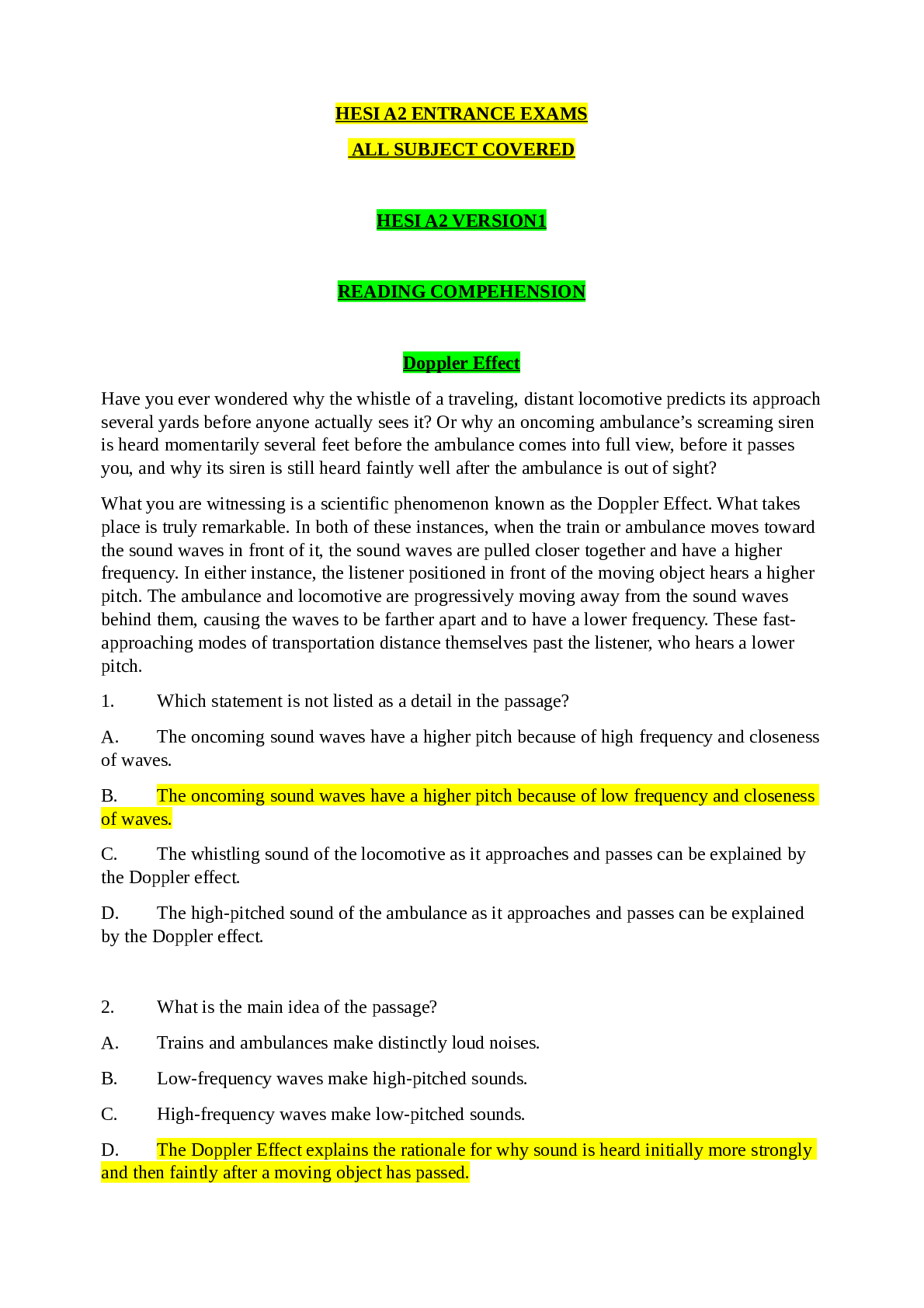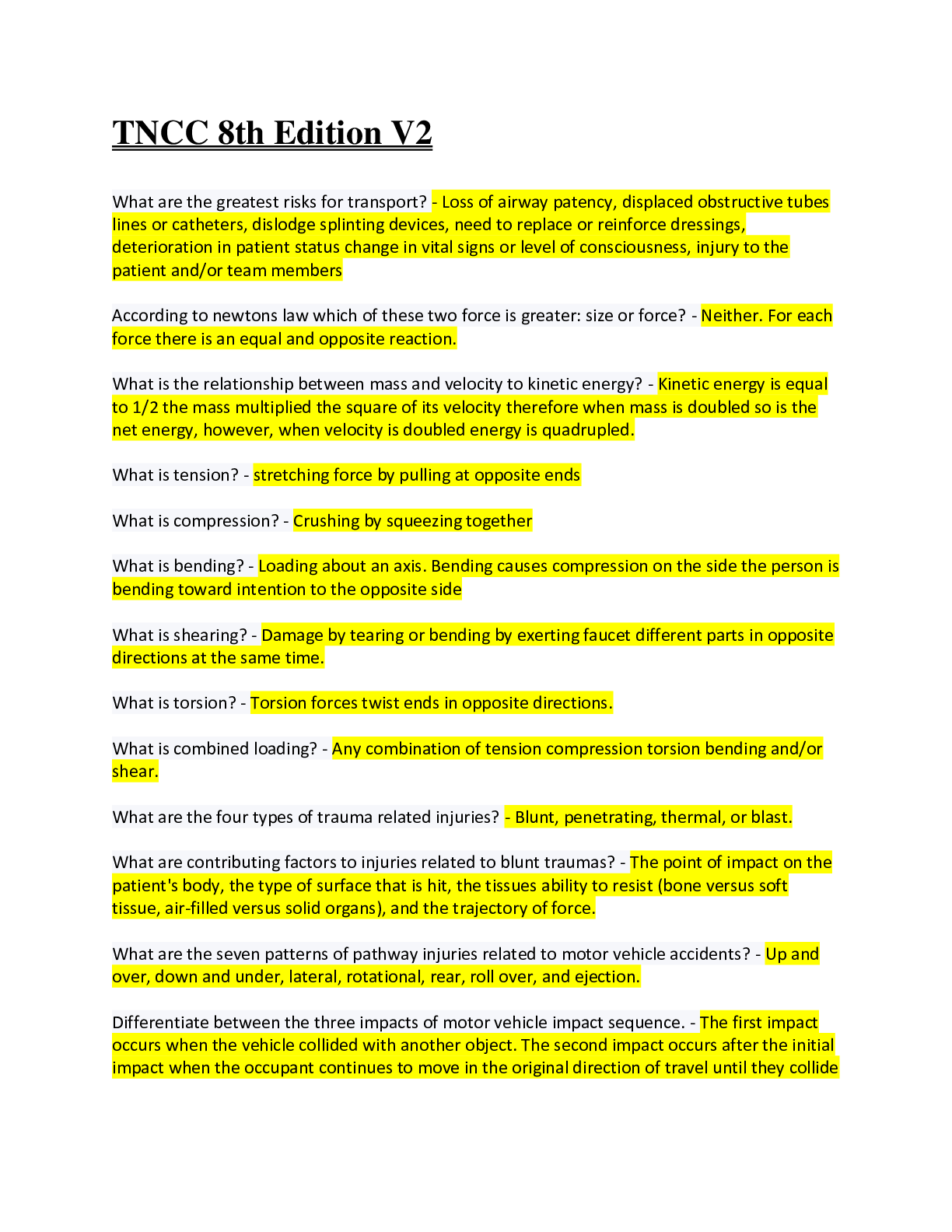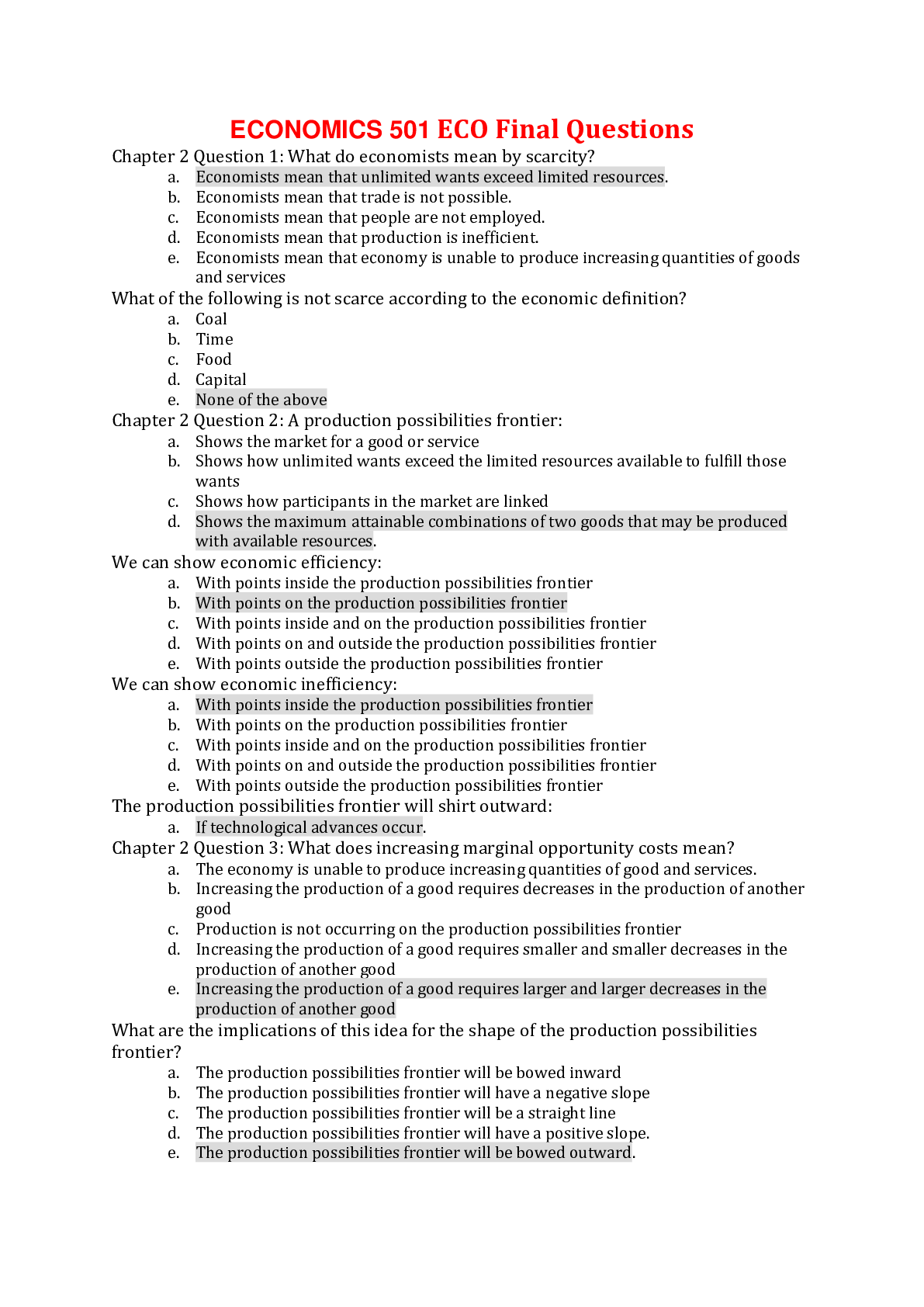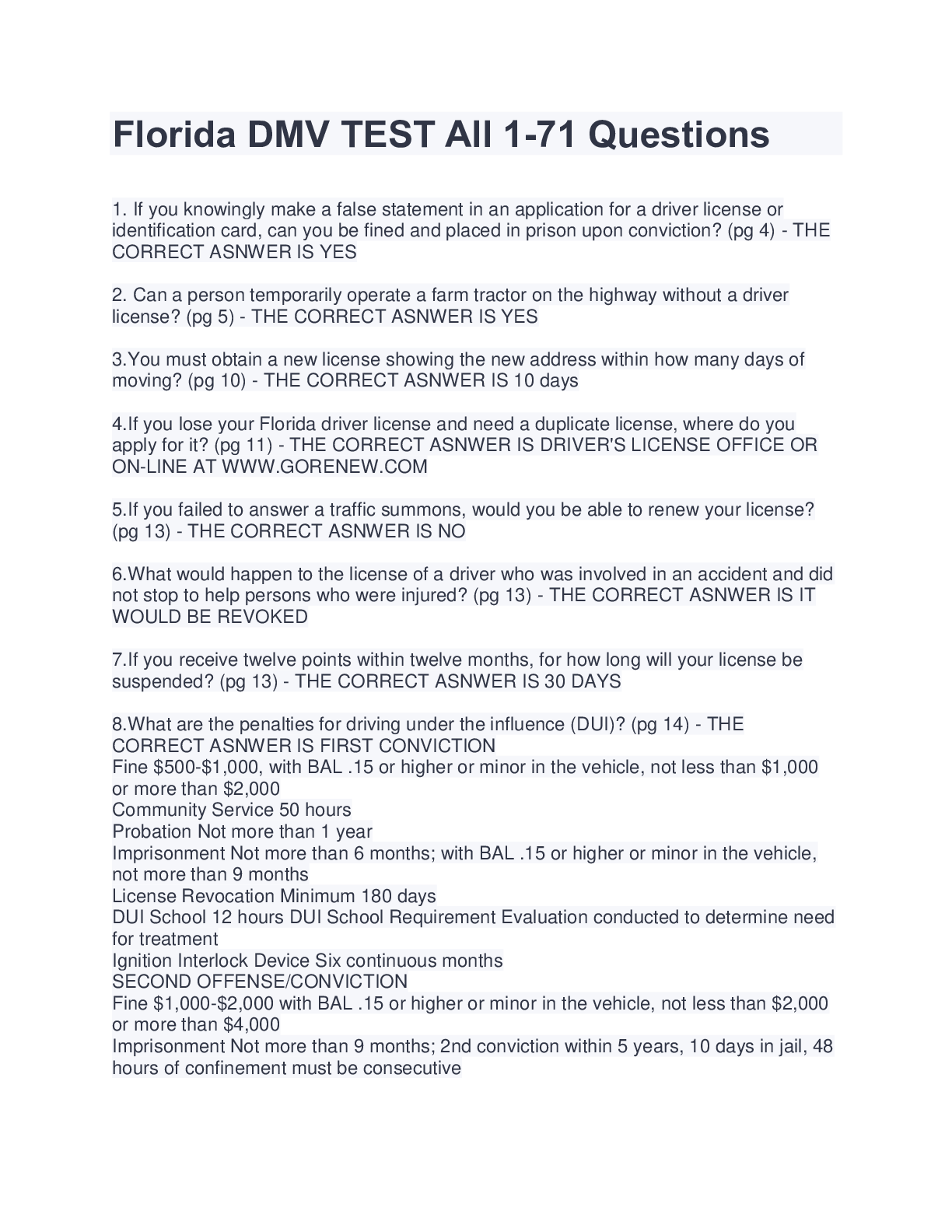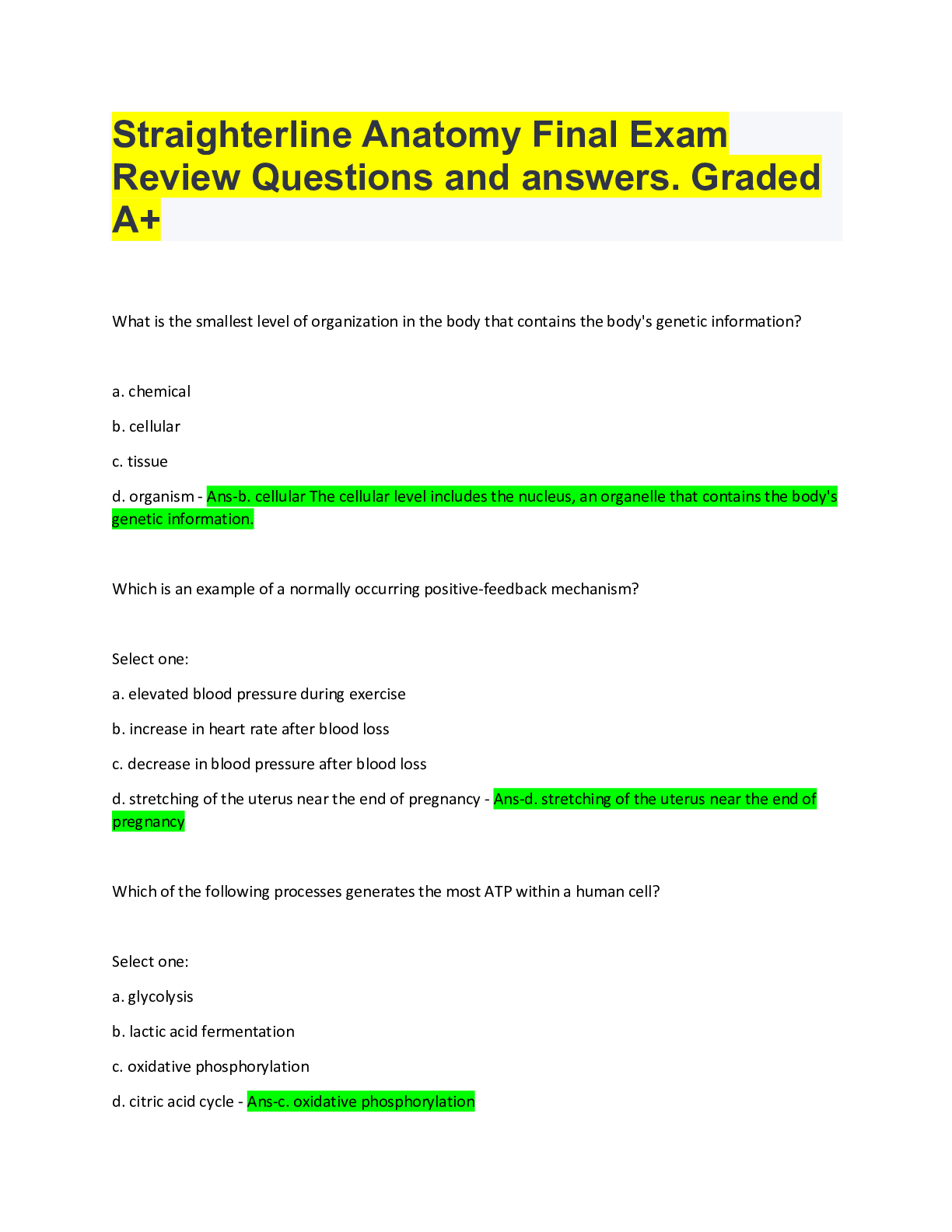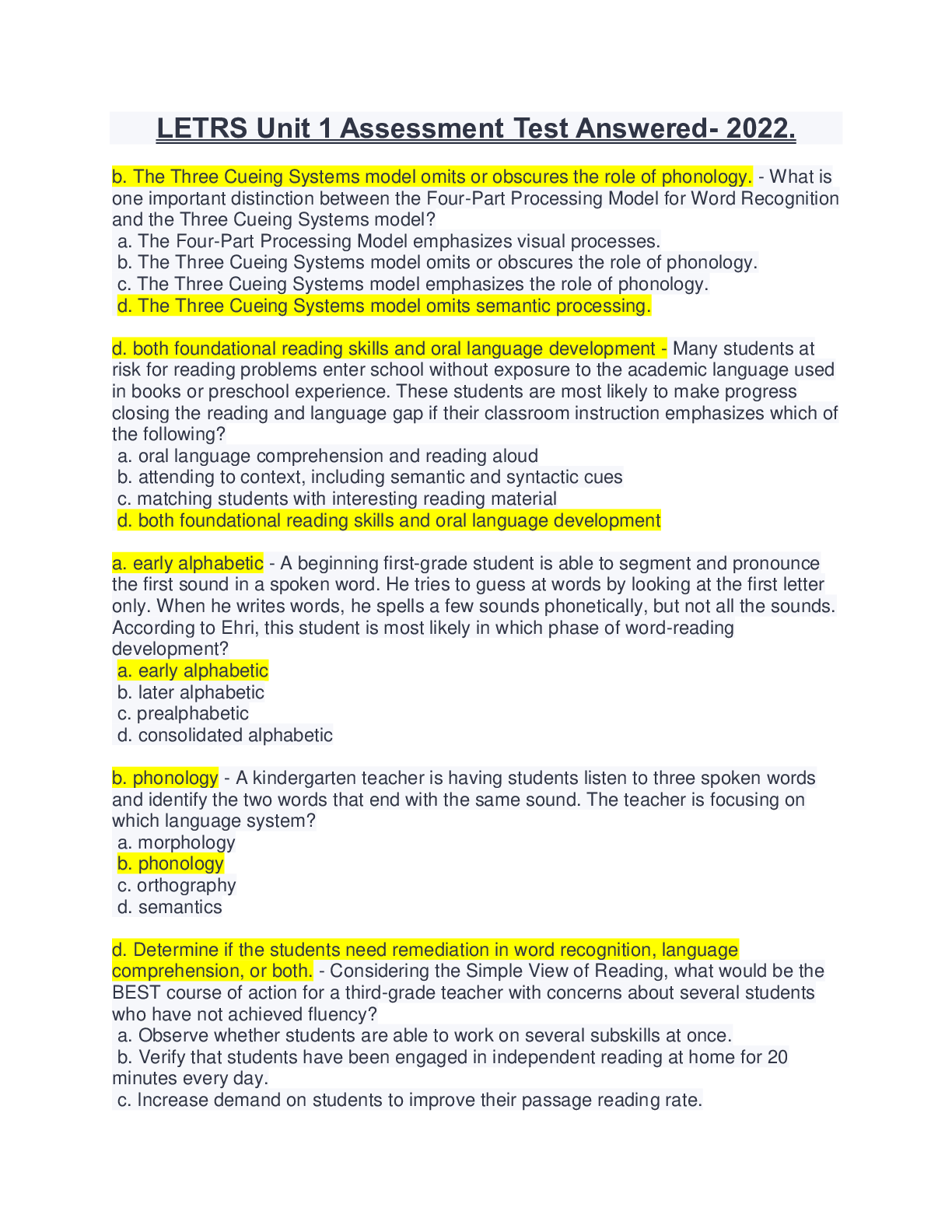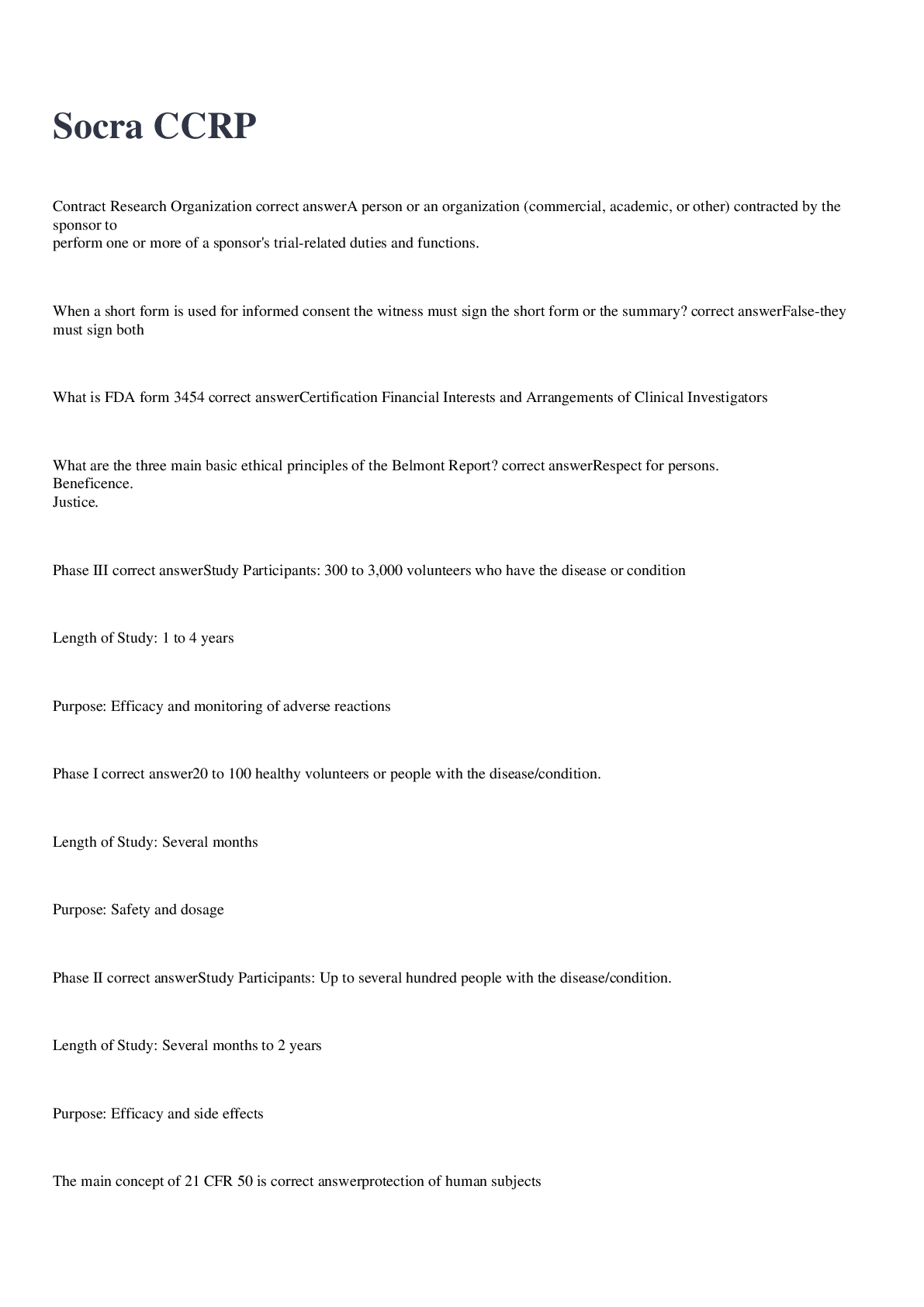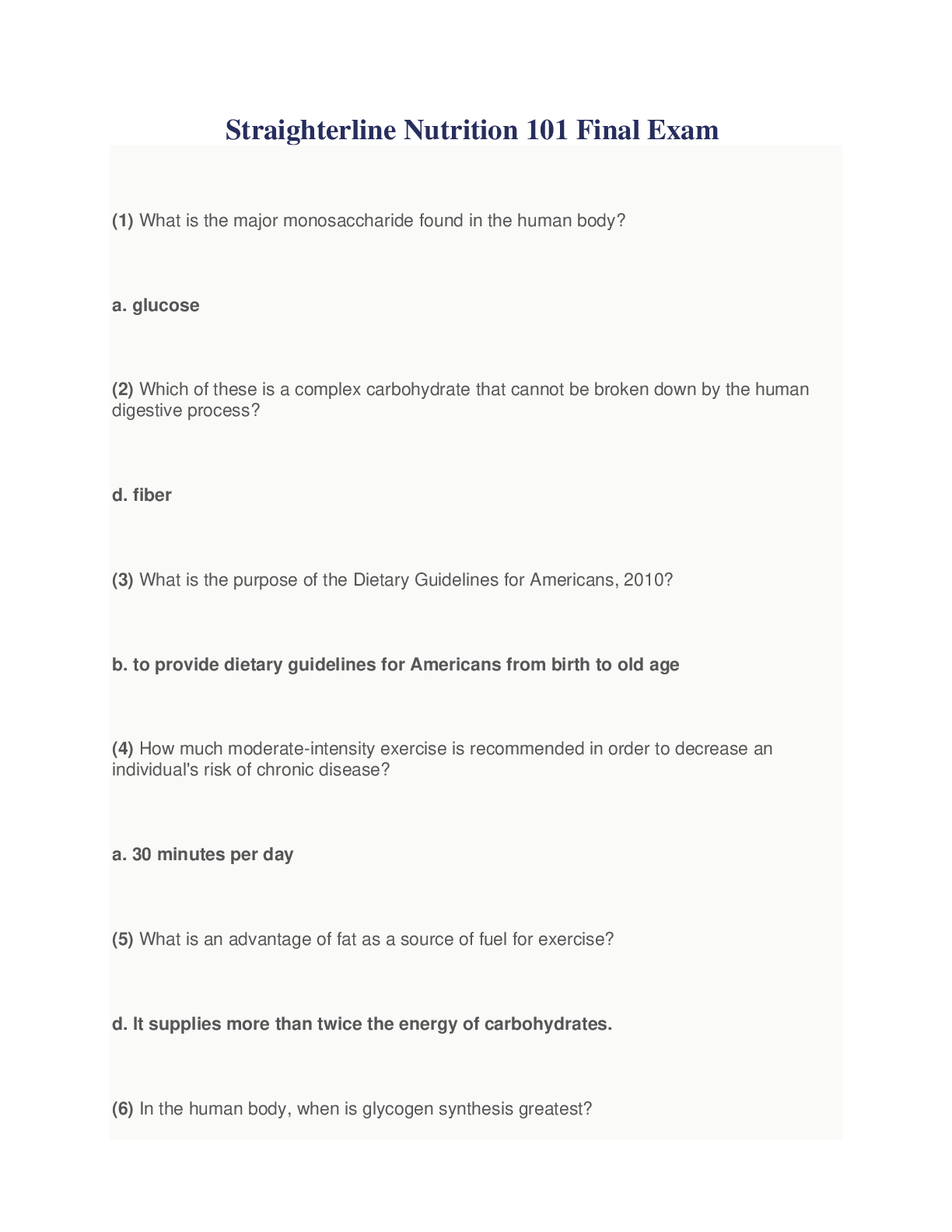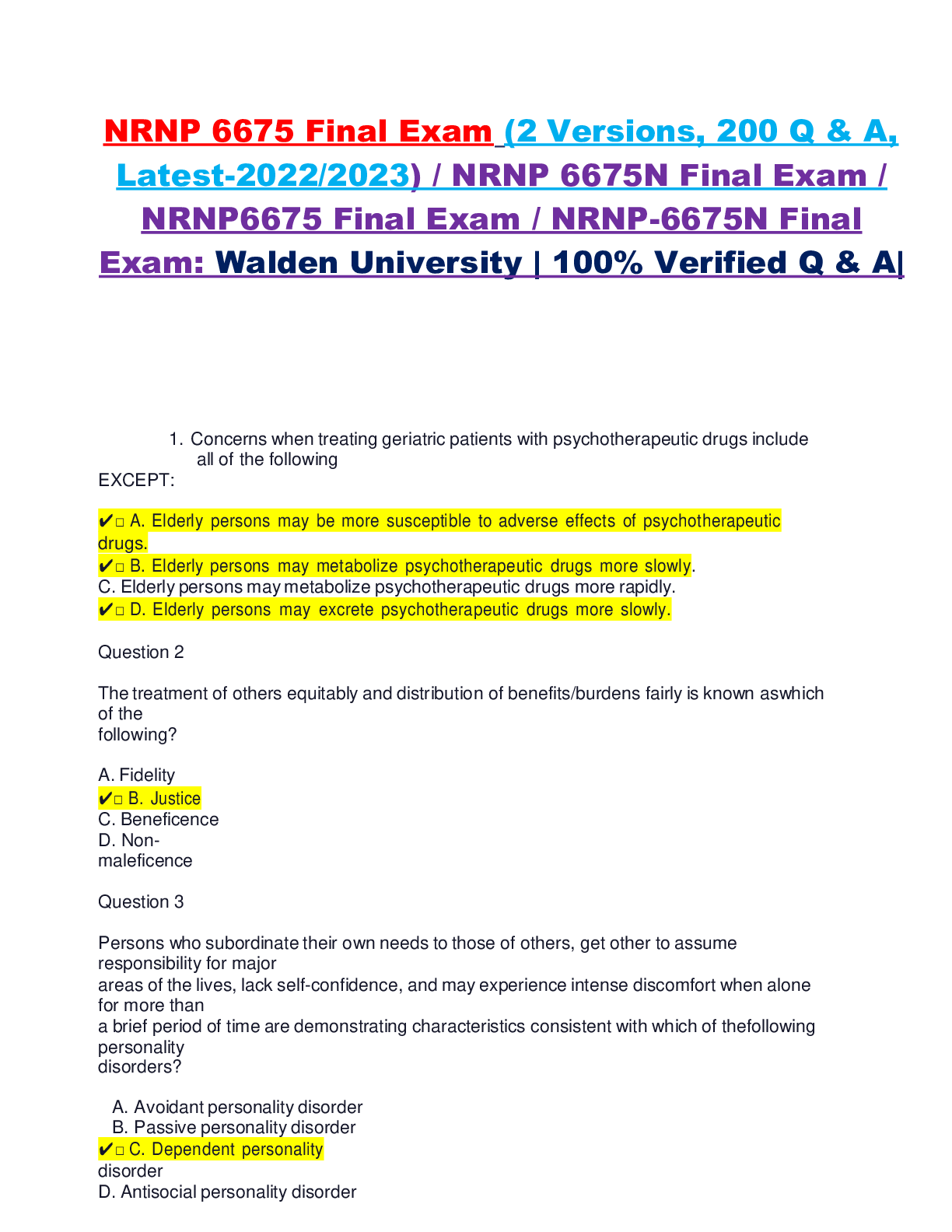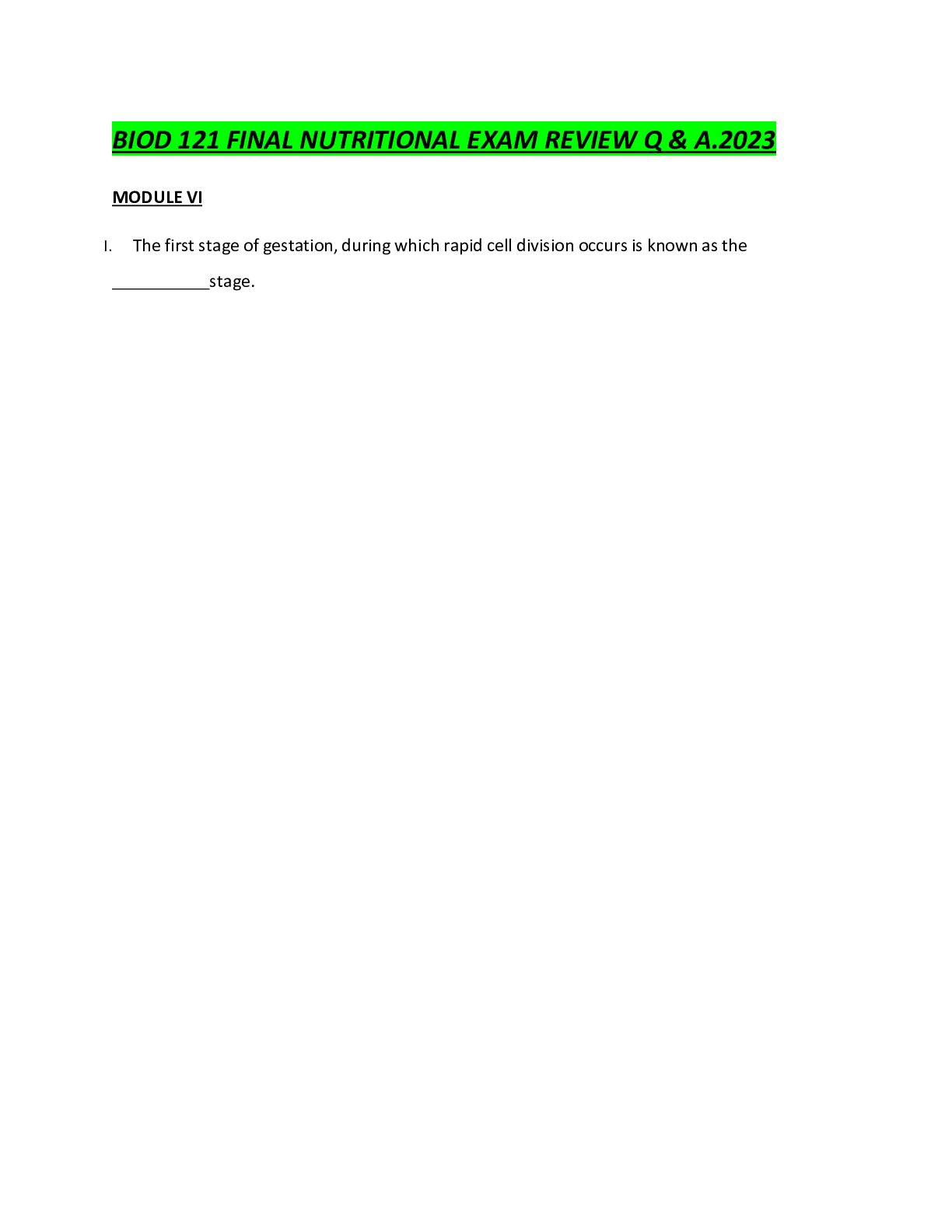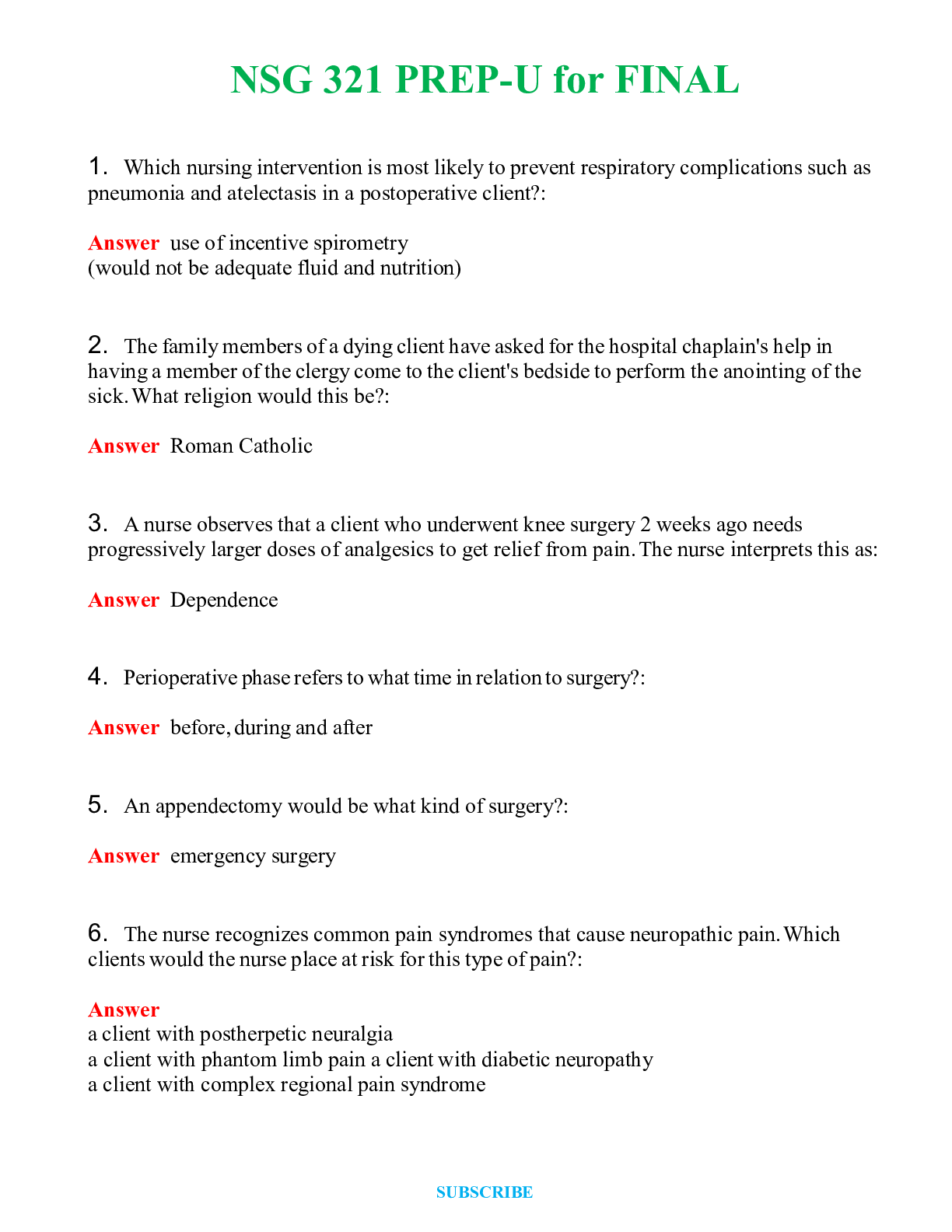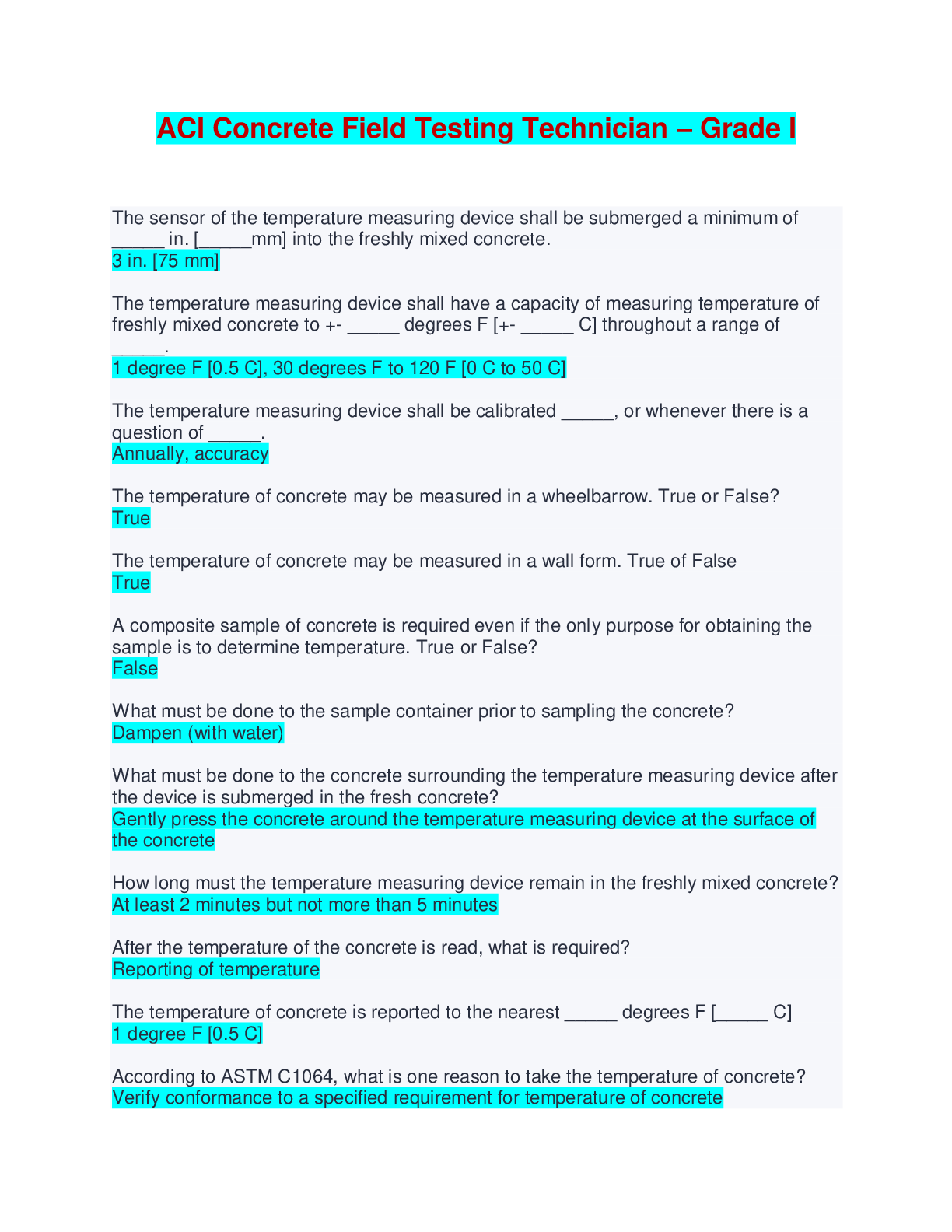NSG 6435: QUIZ 3 TEST: Graded 100%..
Document Content and Description Below
NSG 6435 Attempt 1 Submission View Your quiz has been submitted successfully. Week 3 Quiz Question 1 1 / 1 point What age do children usually begin receiving the human papillomavirus vaccine (H... PV)? 8 years 11 years 13 years 15 years Hide Feedback 11 years is the age most providers begin administering the HPV vaccine. Question 2 1 / 1 point When can a child stop using a booster seat in the car? When the child is at least 4’9” tall. When the child is at least 5’ tall. When the child is at least 4’ tall. When the child is at least 3’ tall. Hide Feedback A child should be at least 4’9” before discontinuing the use of the booster seat. Question 3 1 / 1 point A 13-year-old client diagnosed with infectious mononucleosis 2 weeks ago is in your office today c/o abdominal pain to the upper left quadrant, is febrile and tired. Based on the client’s recent history, what is the best intervention? Prescribe Salicylates for the fever Refer to Gastroenterology Prescribe antibiotics Refer to Emergency Services Hide Feedback Splenic rupture may have occurred; refer to ER is best intervention to r/o active bleeding and need for surgical removal of spleen. Question 4 1 / 1 point An established 14-year-old client who recently returned from camp presents to the clinic c/o chills, severe headache, myalgias, malaise, GI upset/tenderness, diarrhea, cough, conjunctival injection, and a fever. On exam, the provider notes a rash of faint pink spots on the wrists, forearms, ankles, and the trunk. What is the most likely diagnosis? Rocky Mountain Spotted Fever Leptospirosis Meningococcemia Thrombotic Thrombocytopenic Purpura Hide Feedback Rocky Mountain Spotted Fever Question 5 0 / 1 point A client with chickenpox who cannot stop itching presents to the clinic requesting relief. What can the provider do to help this client? (select all that apply) Prescribe calamine lotion Prescribe oral antihistamines Prescribe Salicylates Recommend oatmeal baths Hide Feedback All choices are accurate except Salicylates are contraindicated because of Reye Syndrome. All choices are accurate except Salicylates are contraindicated because of Reye Syndrome. Question 6 1 / 1 point An infant can complete hand-to-hand transfers at what age? 90 days 120 days 7 months 11 months Hide Feedback object transfer occurs by 7 months of age. Question 7 1 / 1 point Which is the most appropriate anticipatory guidance for the child diagnosed with fracture through the growth plate? No sports until pain has resolved Use crutches to ambulate until healed Rest, ice, compress and elevate the affected area Exercise affected area using active range-of-motion exercises Hide Feedback Treatment of slipped capital femoral epiphysis is aimed at pre- venting further slippage. Since the goal is no weight bearing and avoiding flexion of the hip, no sports are recommended. Ice would not change the problem in the femoral head, and ROM and exercise are contraindicated. Question 8 1 / 1 point The provider learns that the family of a client recently rescued a cat from the outside. To prevent the risk of toxoplasmosis, which anticipatory guidance is most appropriate? Feed cat well balanced and high-quality food. Wear shoes at all times in the home. Thoroughly wash hands after changing cat litter. Bath cat on a bi-weekly basis Hide Feedback Transmission of toxoplasmosis occurs through handling of cat feces. Pregnant women should avoid contact with cat litter, and others should wash hands thoroughly when handling cat litter. Question 9 1 / 1 point A 9-day-old client presents to the clinic who is sluggish, has a temperature of 97°F, HR 105, cool extremities, and loss of appetite, presents to the clinic. What should the provider do? Recommend parents to allow the client to sleep Reassure parents that this is normal and client will return to baseline in 7 days Recommend formula feeding Refer to ER to rule out sepsis View Feedback Question 10 1 / 1 point The provider understands that a client with a history of hemolytic anemia and a recent diagnosis of erythema infectiosum (fifth disease), is at risk for which complication? Arthritis Papular-purpuric “gloves and socks” syndrome Chronic Infection Aplastic crisis View Feedback [Show More]
Last updated: 1 year ago
Preview 1 out of 6 pages
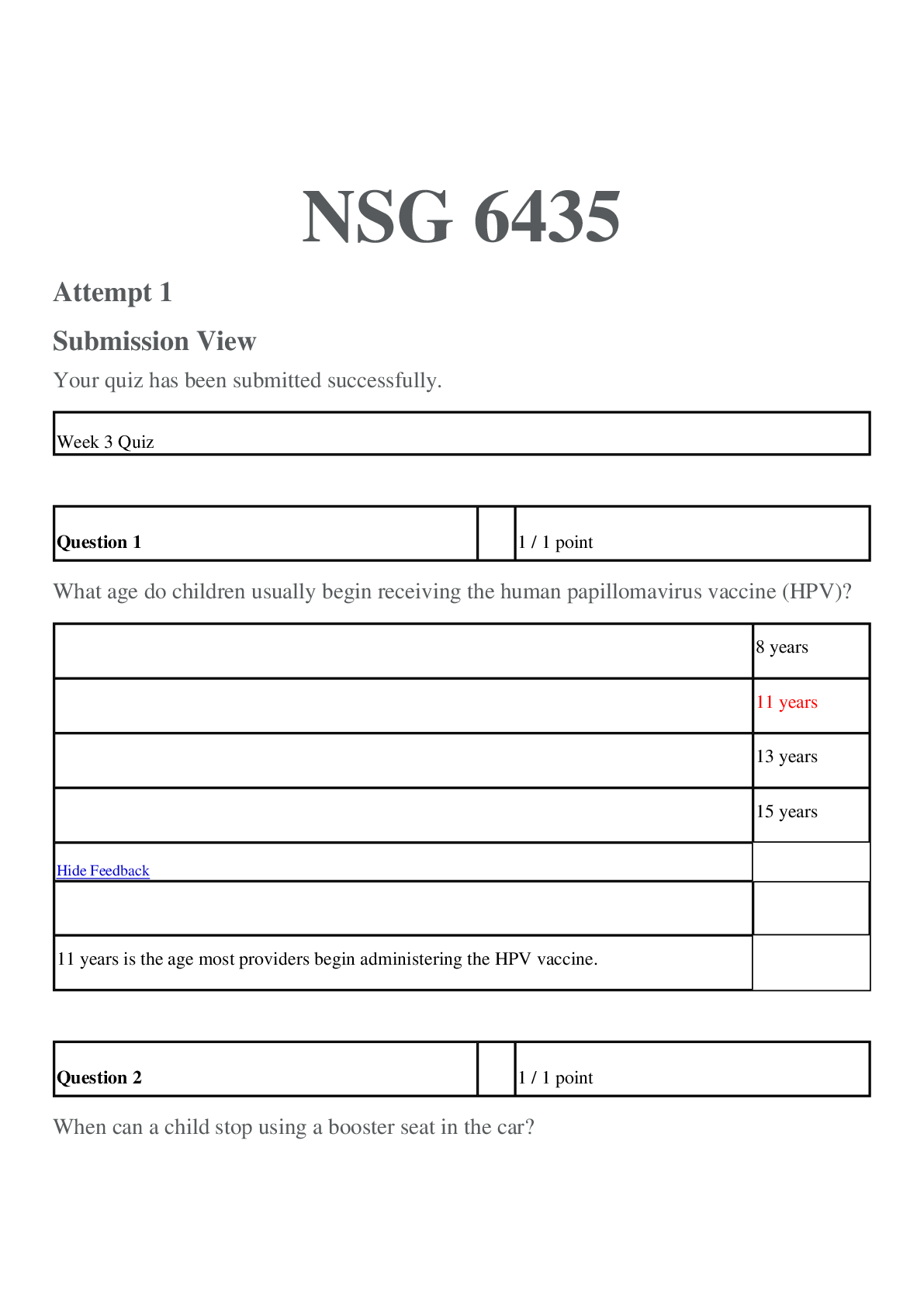
Reviews( 0 )
Document information
Connected school, study & course
About the document
Uploaded On
Aug 01, 2019
Number of pages
6
Written in
Additional information
This document has been written for:
Uploaded
Aug 01, 2019
Downloads
0
Views
114


